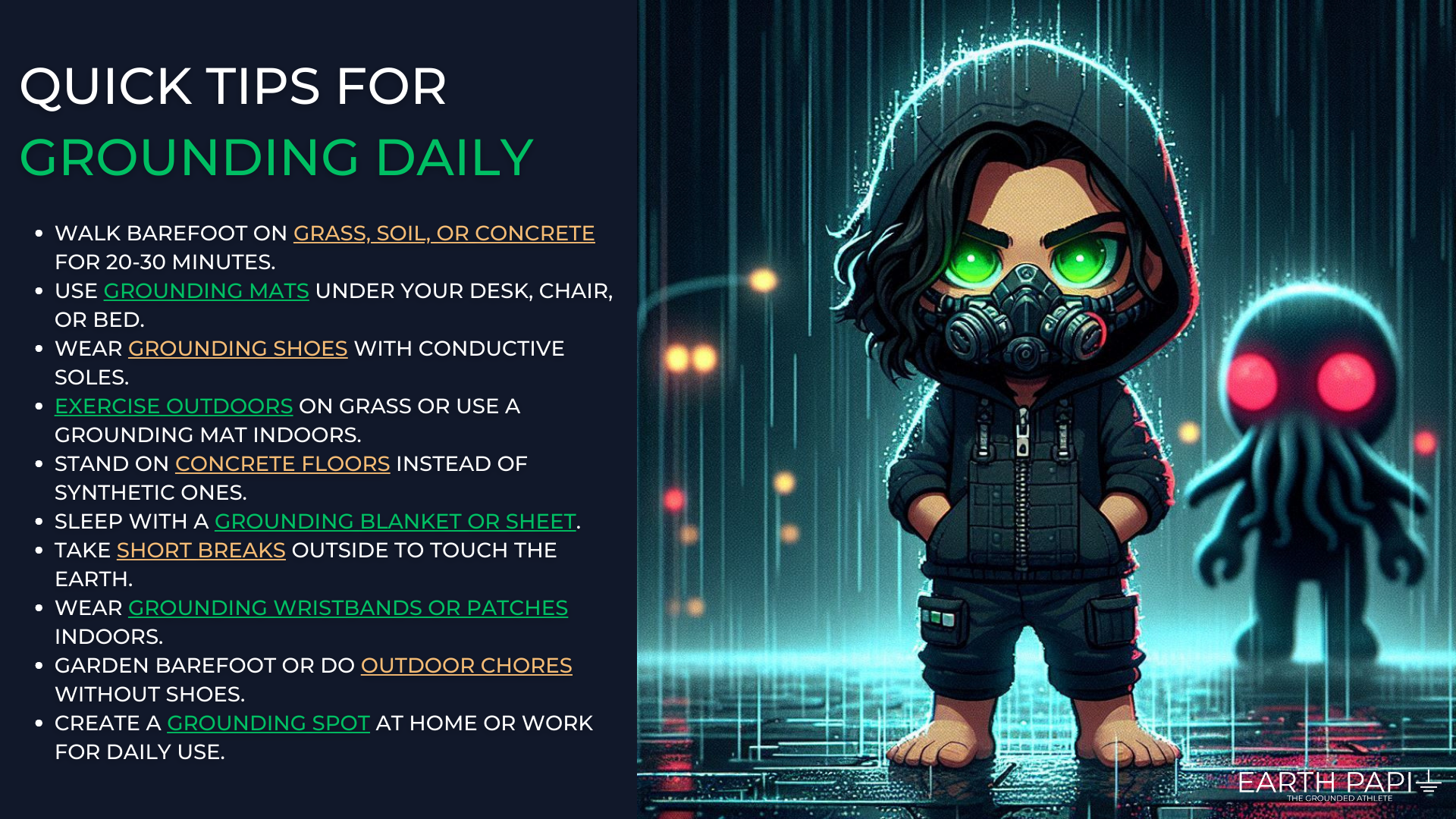How Long Should You Ground for Optimal Benefits? Revisited
Ahhh, one of the most common questions in the world of grounding, and one that I frequently see in my DMs: "How long do I need to ground to see benefits?" I've decided to tackle this topic in a blog post to help clarify things a bit. I, Rob, am here to give you the straight talk. So, let's dive in.
The Short Answer: It Depends
I know, I know—it's probably the most frustrating answer ever. But it's the truth: it depends. Sure, I could say, "20-30 minutes," and that would satisfy a lot of people. And yes, grounding for 20-30 minutes can provide benefits. But the extent of those benefits is where things get nuanced. The answer is highly subjective and depends on the person asking.
What condition are you in? Are you dealing with chronic inflammation? Do you have a generally healthy lifestyle? In short, I can't tell you exactly how long you need to ground because I don't know where you stand on the spectrum of inflammation, oxidative stress, and overall health. That's a discussion for you and your healthcare provider.
What Does the Research Say? Specific Time Frames for Different Benefits
While the "it depends" answer might feel unsatisfying, I can offer some useful information on what kind of time frames have been observed for various benefits in grounding studies. Here’s a breakdown of the time frames used in various research areas:
Zeta Potential (Blood Cells' Electric Charge): 2 hours
Heart Rate Variability (HRV): 40 minutes
Skin Conductance: 2 hours
EEG / EMG (Brain and Muscle Activity): 28 minutes
Facial/Torso Blood Circulation (Infrared Imaging): 1 hour
Blood Viscosity (During Yoga): 1 hour
Medical Thermography: 30 minutes to a full night of sleep
Meditation Quality / Brain Mapping: 40 minutes
Training Recovery / Creatine Kinase Levels: During sleep
Vagal Tone (Parasympathetic Activity): 20-40 minutes
Cortisol Levels: During sleep
Pulse Rate, Respiratory Rate, Blood Oxygenation, Perfusion Index, Skin Conductance: 40 minutes
Delayed Onset Muscle Soreness (DOMS) / Muted Immune Response: Most of the day and during sleep
Osteoporosis Primary Indicators: During sleep
Blood Urea (Post-Training Recovery): 1.5 hours
These are some of the "big ones" in terms of studies and observed effects. However, keep in mind that the moment you make electrical contact with the Earth (i.e., ground yourself), your skin conductance and body voltage drop instantly. Electrons can move quickly, depending on the situation and how "energized" they are. Because of this instantaneous charge transfer and electrical coupling, both the external and internal environments of your body change.
How Quickly Will You Feel the Effects?
The speed at which these changes are felt can vary widely among individuals. As mentioned earlier, this is where the nuances come in. Humans have spent most of their evolutionary history in direct contact with the earth; being grounded is actually the body's natural electrical state. You are meant to be grounded 24/7. Grounding produces an immediate biophysical and electrical change, but how these changes manifest and are felt will differ for each person.
The bottom line? The longer, the better. Even one minute of grounding is better than none at all.
How Long Do I Ground?
A question I also get often is: “Rob, how long do you ground?”
Here's my typical day:
I sleep grounded, which gives me about 9.5 hours.
I do my computer work grounded, adding another 2-3 hours.
I work on a concrete floor (which conducts electricity and works for grounding) for about 3-4 hours.
I wear grounding sandals and use a grounding mat before, during, and after training.
On an ideal day, I might be grounded for up to 18 hours.
"That’s soooooo long, Rob!"
Yes, young starflower, it is long! But this is the lifestyle I’m advocating. Grounding as much as possible aligns with our natural state and offers a host of benefits. Whether you're looking to improve recovery, reduce inflammation, or just feel more connected to the earth, grounding is a simple, accessible practice with a lot of potential upside.
So, start small if you need to, but aim for longer. Ground when you sleep, work, or meditate—make it a part of your daily routine. Your body will thank you.
The end! Thanks for reading! Feel free to reach out if you have more questions or need more tips on grounding. To learn more, check out Earth & Water.


